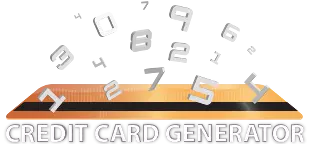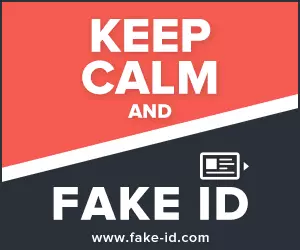Want even more credit card numbers? Generate Credit Cards
MasterCard
- 5308 6630 9993 1464 5308 6630 9993 1464, CVC2:914, 11/31
- 5519 4872 9831 6680 5519 4872 9831 6680, CVC2:798, 02/28
- 5563 0154 1444 6944 5563 0154 1444 6944, CVC2:631, 12/28
- 5251 7079 9907 0159 5251 7079 9907 0159, CVC2:888, 06/31
- 5563 9670 7687 2843 5563 9670 7687 2843, CVC2:159, 03/31
VISA
- 4929 2223 6965 6699 4929 2223 6965 6699, CVV2:178, 08/28
- 4532 1054 7629 2178 4532 1054 7629 2178, CVV2:540, 01/30
- 4563 3586 6520 1797 4563 3586 6520 1797, CVV2:670, 04/28
- 4485 3005 6983 5325 4485 3005 6983 5325, CVV2:068, 08/29
- 4929 2300 5211 0338 4929 2300 5211 0338, CVV2:600, 11/30
How to Choose Your First Credit Card
Choosing your first credit card is a major financial step — one that can open up new opportunities but also comes with important responsibilities. With so many options available, it’s easy to feel overwhelmed. However, by focusing on your needs, doing some research, and understanding what different cards offer, you can find a card that fits your lifestyle and helps you build a solid financial future.
1. Understand Why You Need a Credit Card
Before you even start comparing credit cards, take a moment to consider why you want one in the first place. Are you looking to build your credit history, earn rewards on everyday purchases, or have a convenient way to pay for emergencies? Knowing your primary reason will help you narrow down your choices and avoid cards that don’t fit your goals.
2. Compare Interest Rates (APR)
One of the most important factors to look at is the interest rate, often called the Annual Percentage Rate (APR). A lower interest rate will save you money if you ever need to carry a balance from month to month. Be sure to find out if the low rate is an introductory offer that will increase after a certain period. Ask whether interest is charged from the purchase date or only after the billing cycle ends. This information can have a big impact on your costs if you don’t pay your balance in full each month.
3. Examine Rewards and Benefits
Not all credit cards are created equal when it comes to perks. Some cards offer cash back on grocery shopping, gas, or dining out, while others provide airline miles, hotel points, or discounts at specific retailers. Look for a card that offers rewards that match your spending habits. Read the fine print to see if there are limits, expiration dates, or special requirements for earning or redeeming rewards.
4. Watch Out for Fees and Penalties
Many first-time cardholders are surprised by unexpected charges. Common fees include annual fees, late payment penalties, balance transfer fees, and even charges for going over your credit limit. Some cards may also have foreign transaction fees or fees for paper statements. Ask the issuer about all possible fees — especially any that might not be obvious upfront. Understanding these can help you avoid unnecessary costs and make smarter decisions about how you use your card.
5. Understand the Billing Cycle
The billing cycle determines when your statement is issued and when your payment is due. Make sure you know if the cycle starts on the day you activate the card or the day you make your first purchase. A monthly billing cycle is standard, but some cards may have different timelines. Understanding your billing cycle will help you plan payments and avoid late fees.
6. Consider Online Access and Payment Options
Convenience matters, especially in today’s digital world. Most credit card companies offer online account management, allowing you to pay your bill, review statements, set up alerts, and even freeze your card if it’s lost — all from your computer or smartphone. Make sure the card you choose has a user-friendly app or website and flexible payment options, like online, by phone, or even through automatic payments.
7. Know Your Credit Limit
When you’re approved for a card, the issuer will set a credit limit based on your credit history, income, and other factors. Your limit might increase over time as you demonstrate responsible use, but it’s important to know your initial limit so you don’t accidentally overspend. Exceeding your credit limit can lead to fees and hurt your credit score.
8. Start with One Card and Use it Wisely
As tempting as it may be to apply for several cards to maximize rewards, it’s usually best to start with one card and get comfortable managing it. Use your card for regular expenses you can afford, and always try to pay your balance in full each month. This will help you avoid interest charges and establish a positive credit history.
9. Make a Budget and Plan for Payments
A credit card is not free money. Only charge what you know you can pay off each month. Setting a budget for your spending and having a plan for how you’ll pay your bill will help you stay in control and avoid debt. It’s a good idea to keep an emergency fund on hand for unexpected expenses, so you don’t have to rely on credit for emergencies.
10. Learn About Installment Options
Some cards allow you to split large purchases into smaller, manageable payments — sometimes with low or no interest for a promotional period. If you’re planning a big purchase, ask if installment plans are available and if there are any fees or restrictions.
11. Don’t Be Afraid to Ask Questions
If you’re unsure about any terms, fees, or features, don’t hesitate to ask the credit card issuer for clarification. Understanding exactly how your card works before you apply can save you from surprises later.
Final Thoughts
Your first credit card can be a powerful tool for building your financial future, establishing your credit score, and unlocking valuable rewards. Used responsibly, it acts like a short-term loan with no interest if you pay your balance each month. Whether you’re paying college tuition, booking a trip, or covering everyday expenses, make sure you use your card for purchases you can truly afford. By making smart choices and staying informed, you’ll set yourself up for long-term financial success and enjoy all the advantages that responsible credit card use can bring.


